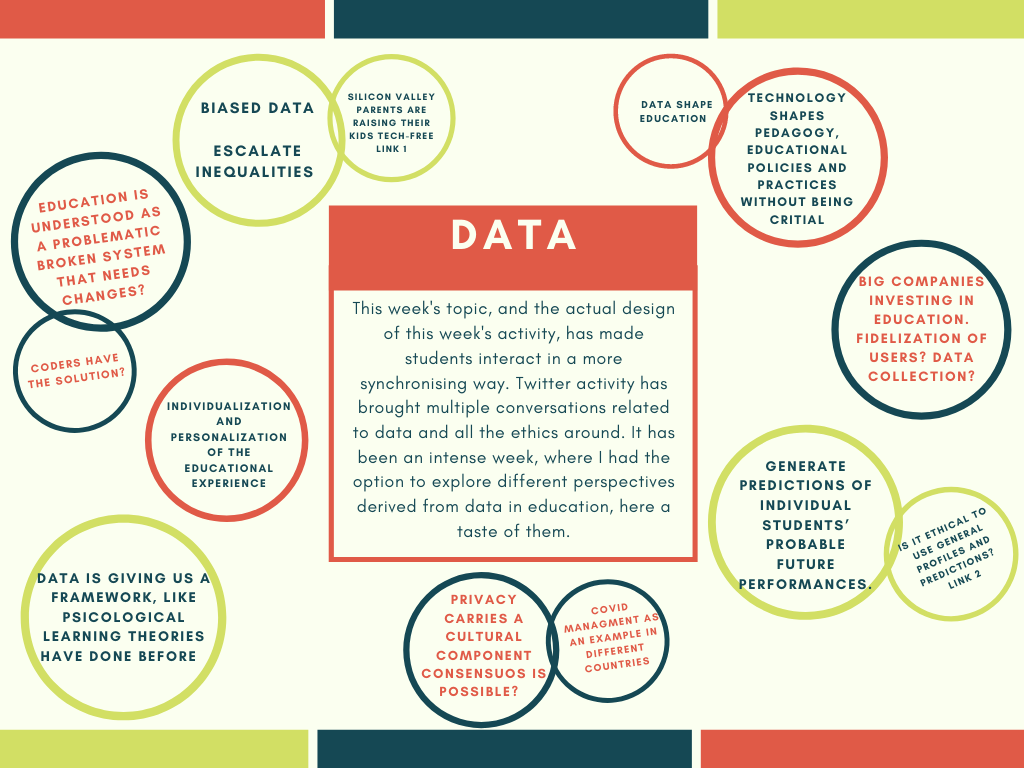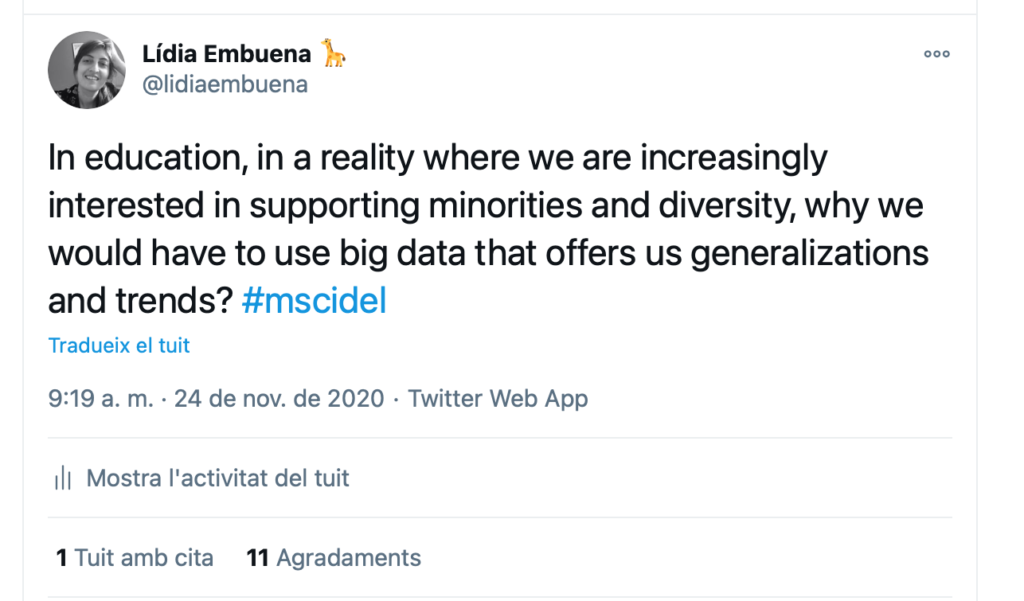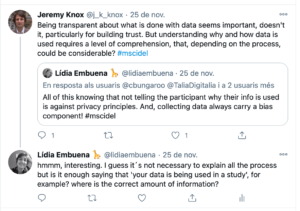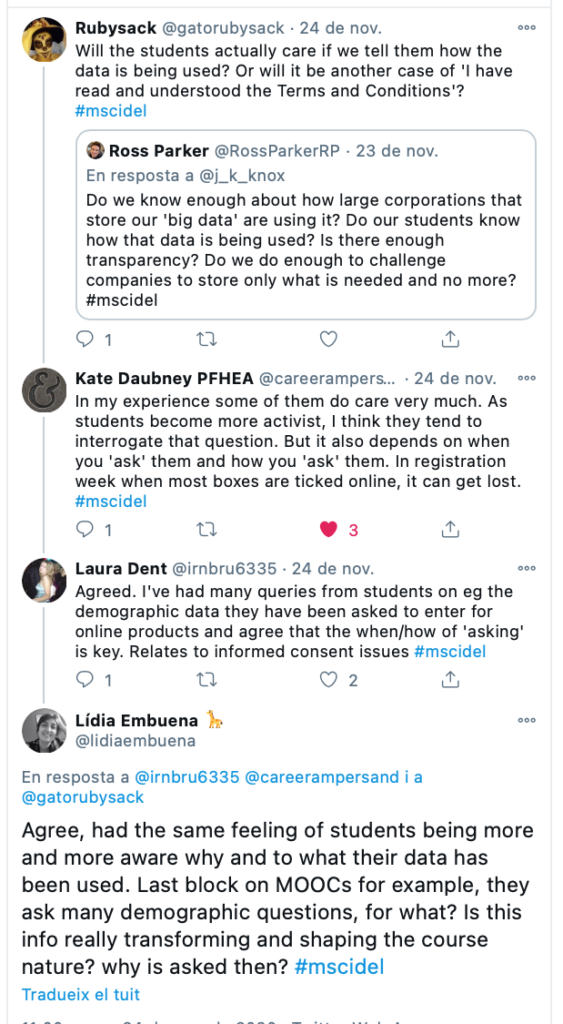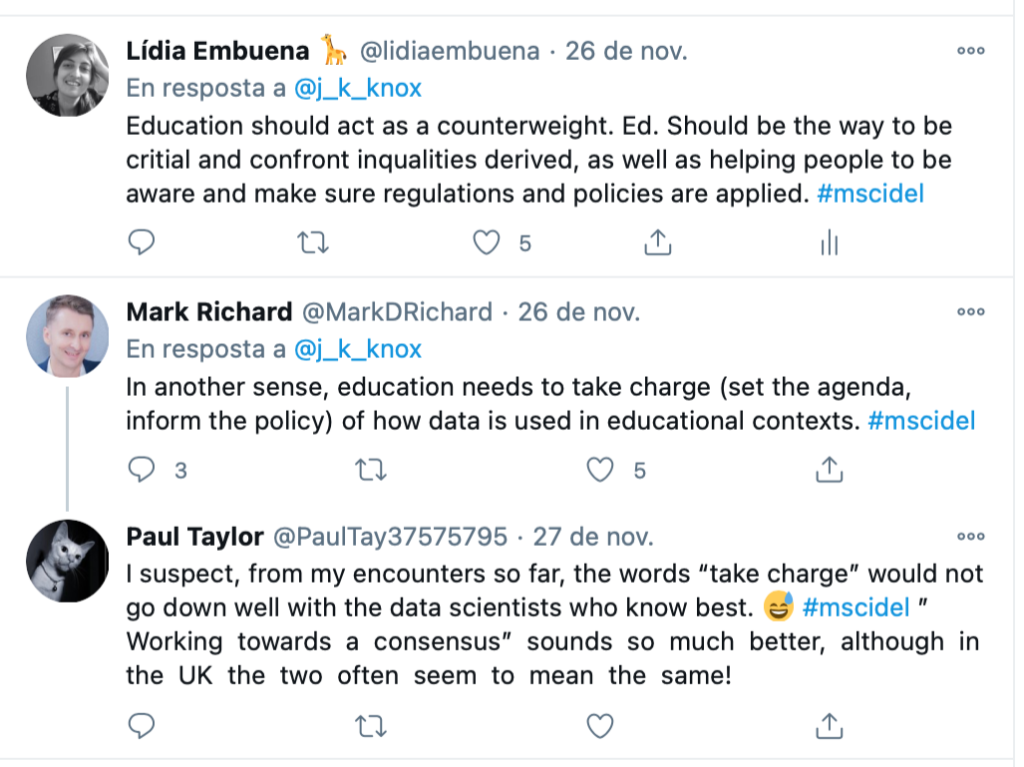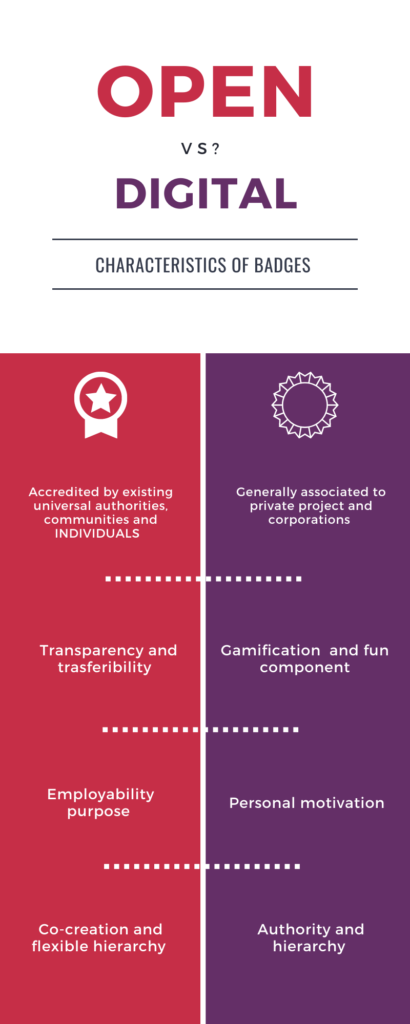Here I am, after 12 weeks and 35 posts later, here I am, writing the last post of this blog. It is Sunday night, and like the last 3 months, my plan for today is a date with my laptop, some snacks and a post to write. However, it feels different this time, I feel calmer than usual, more confident and even I would be bold and say I feel proud of myself.
When IDEL started I felt insecure, ashamed because the last time I was not able to continue, and even though I was ready for the challenge I was scared of not being able to finish. I had doubts about my ability to follow the course, doubts about my tenacity and my capacity to persevere and not get lost in excuses and thoughts to allow me to drop it out again… I basically didn’t trust myself, or my skills to follow the demanding pace of the course. But, here I am, many things have changed since my first post, and I am writing this last one from another (better) position. I am writing it from the serenity and peace that you have after conquering the top of a mountain. Looking back to the last 12 weeks, I can say that I feel more comfortable in many labels.
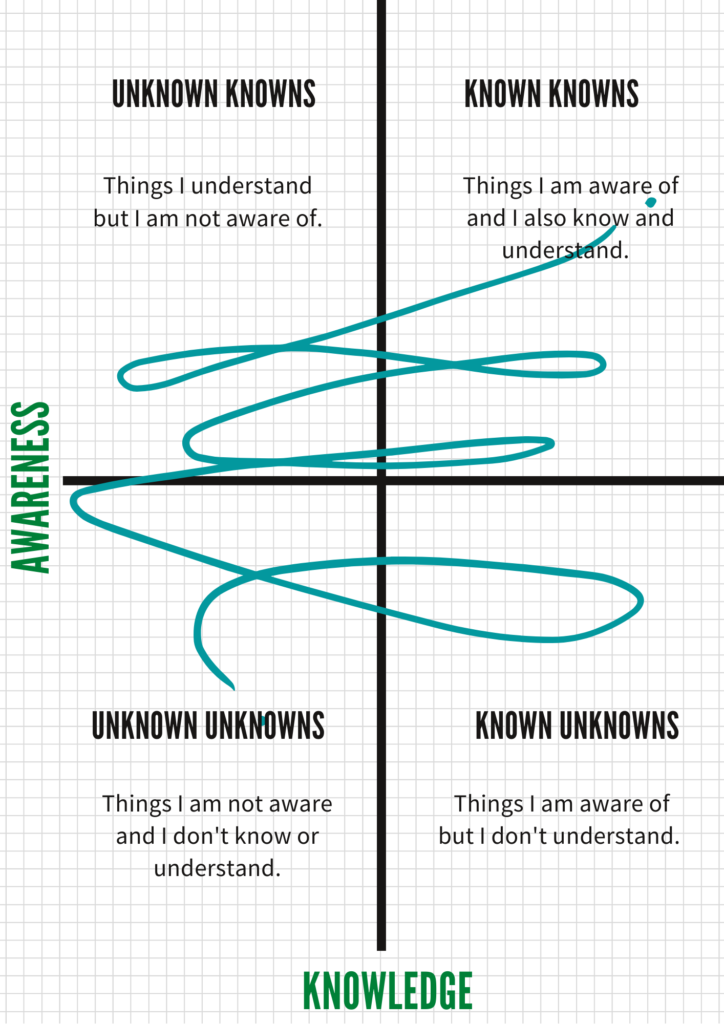
First of all, I can identify how I have improved organising the workflow of the week. The first weeks I felt overwhelmed and stressed about the number of articles to read and the pressure to write. The fact that each week or each fortnight was focused on a different topic, it has been interesting and difficult at the same time. Sometimes, I felt that I was not able to go deeper to the topic, having the feeling that when I was immersed I needed to stop and starting another thing from scratch. After some weeks, I felt more comfortable with the dynamic and I enjoyed the transition and learned how to connect one theme with the other.
Week after week I have been learning how to organise myself, managing my IDEL time in a more efficient way and learning how to prioritise tasks in order to deliver on time and with the expected standards. I have to say that not all weeks I was happy with my posts. But, this has been a learning experience as well because I have had to accept the reality where I don’t have the time to dedicate and dig deeper. I have learned how to condense ideas and thoughts, and above all, how to show and express my thoughts in an efficient way. During the course, I needed to show the most relevant reflections and proof of my progress. In that way, I needed to be careful with the content I was generating, being aware of choosing my battles, and accepting that probably some of the reflections I had during the week were not very visible or as well represented as I would have liked.
Despite this, I feel I have been able to show my reflections, I have shown that I was following the course connecting the post with the content of each week and I have linked my personal and professional experience with the syllabus.
Furthermore, and thanks to my tutor guidance and support, I have felt confident to try and experiment with different technologies. Analysing my old posts I can see my progress using different tools and betting on multimodality formats like video, sound, image or creative presentations. At the beginning of the course my tutor wrote to me: “What I really hope is that this blog becomes a place where you feel comfortable exploring ideas, challenging your preconceptions, reflecting on your experiences and scrutinising the different theories and concepts we encounter across and beyond the readings“.
I am happy to say that yes, I think the blog has become a personal playground where I have felt safe to investigate and comfortable to challenge my skills, knowledge and pre-thoughts. Thanks to the constant and good feedback and support from my tutor I can say I have developed my confidence. As well as noticing the pressure to deliver. James feedback it has served as the perfect accountability I needed in order to keep motivated with the course. I knew each Monday he would read what I wrote and I felt the responsibility to fulfill the task and the expectations.
Moreover, recovering more ideas from my first post, highlight this sentence where I said: “I am willing to read, research, and learn. I want to be a new version of me that is actually a good student.” I am very aware that I could have done much more. Some weeks I only have time to read the mandatory readings, and as I said I was not always happy with the final post, I do autocritique. Even though I am aware that I can improve and be more ambitious in the next courses, overall I am satisfied and happy with my work in the blog. I feel I can have some redemption from my previous enrollment in the course and I feel that I am a better student version of me.
In summary, I can say that IDEL has been a great challenge to face. I have seen IDEL as an introduction to the masters as a whole and it has been the perfect presentation to Digital Education. IDEL has not only allowed me to learn new concepts and question myself. The design of the course also has offered me the space to be critical, disagree and take a personal position when discussing the content. And of course, discussions with classmates (on formal and informal spaces) have been the perfect combination to enrich my personal learning path. IDEL course it has been a nice journey to challenge previous ideas and build the fundamentals to keep growing and specialise in future modules.

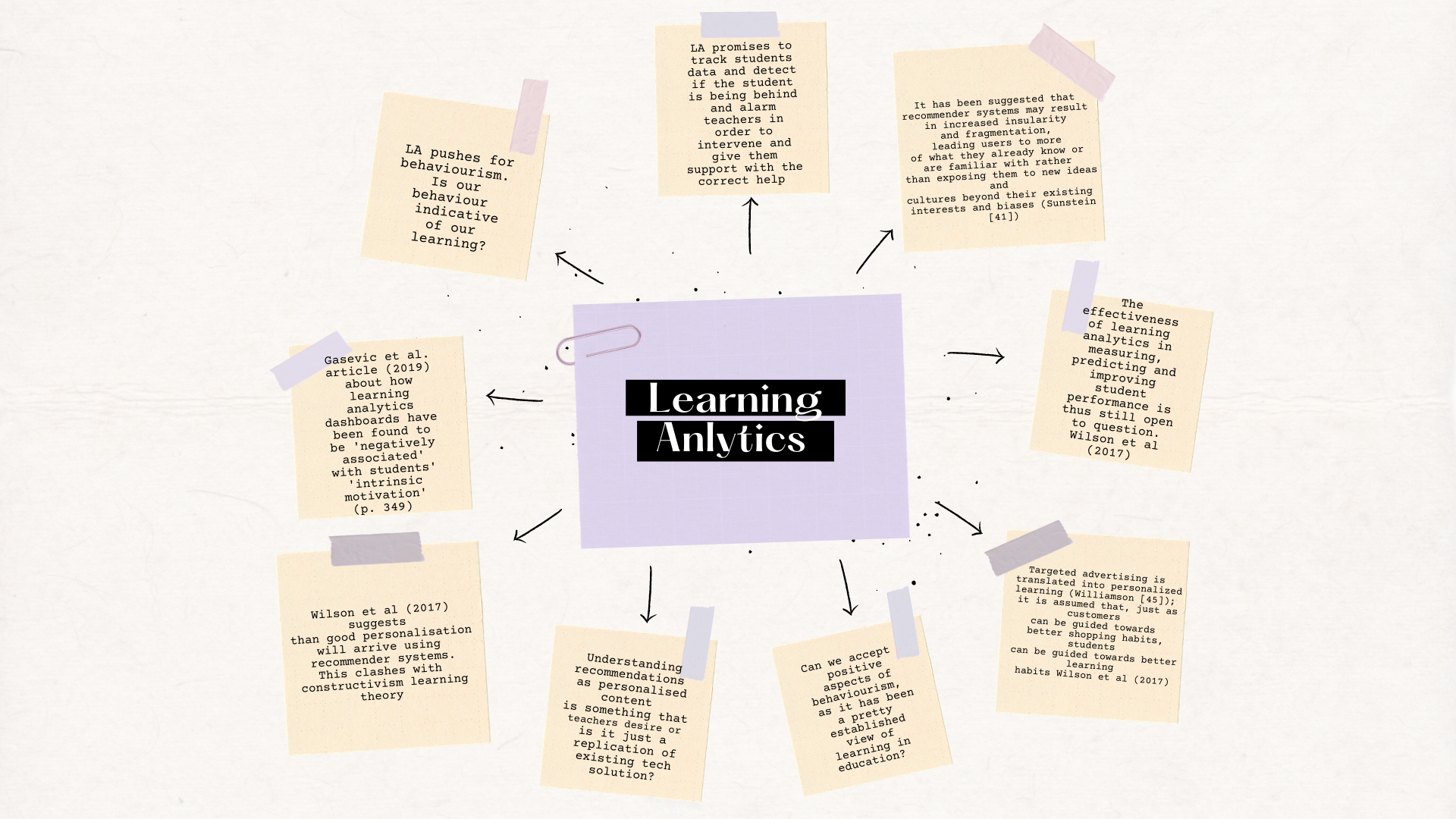
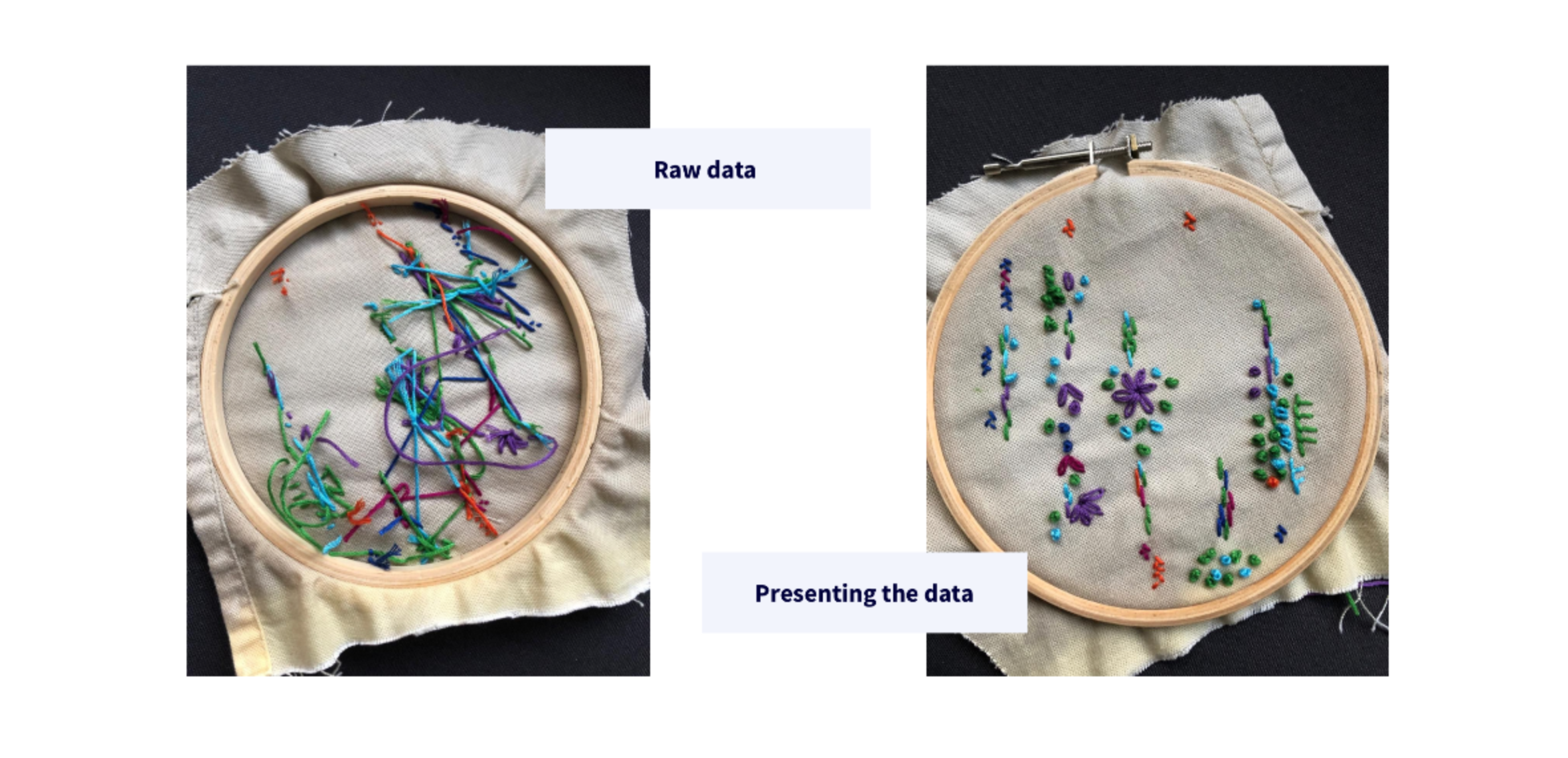
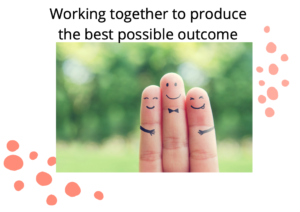
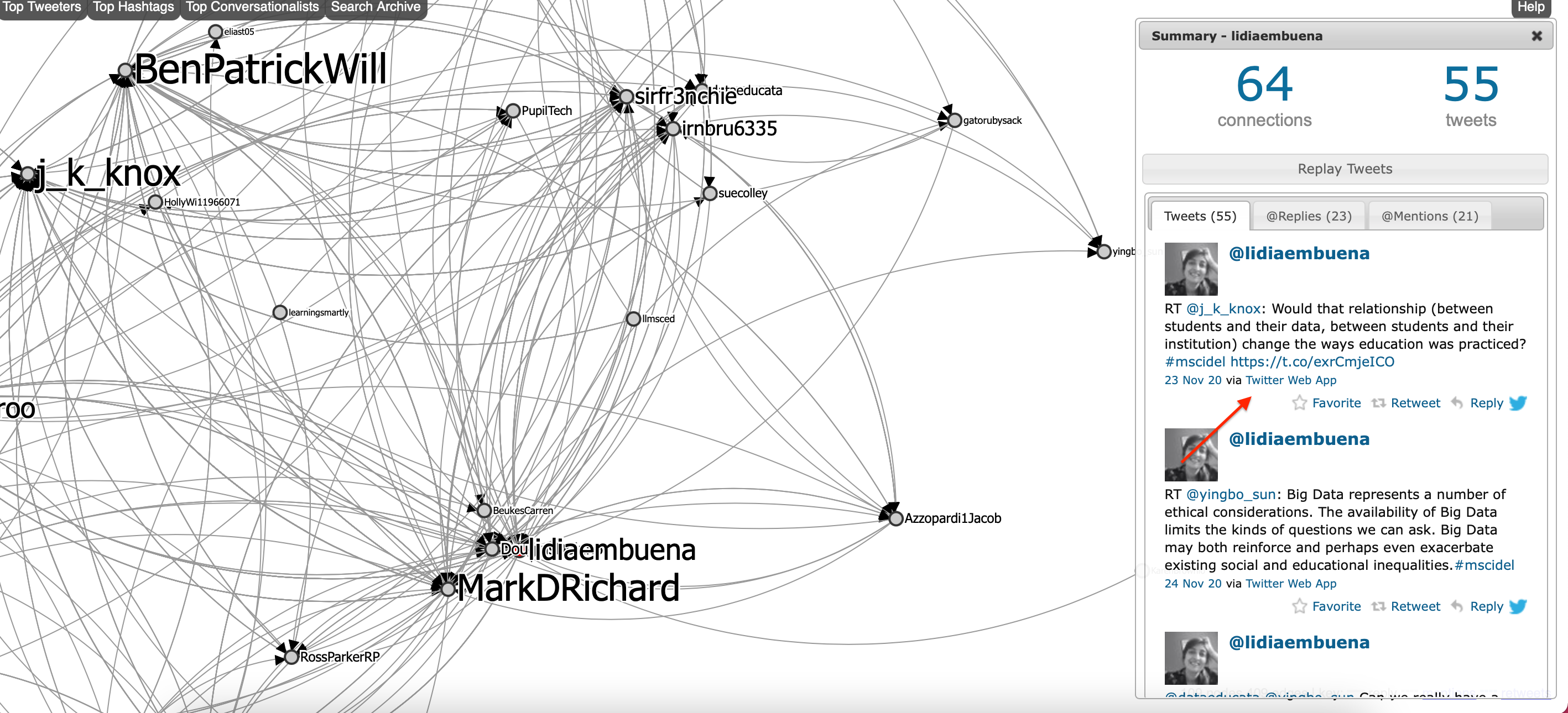 Click image to see the content
Click image to see the content